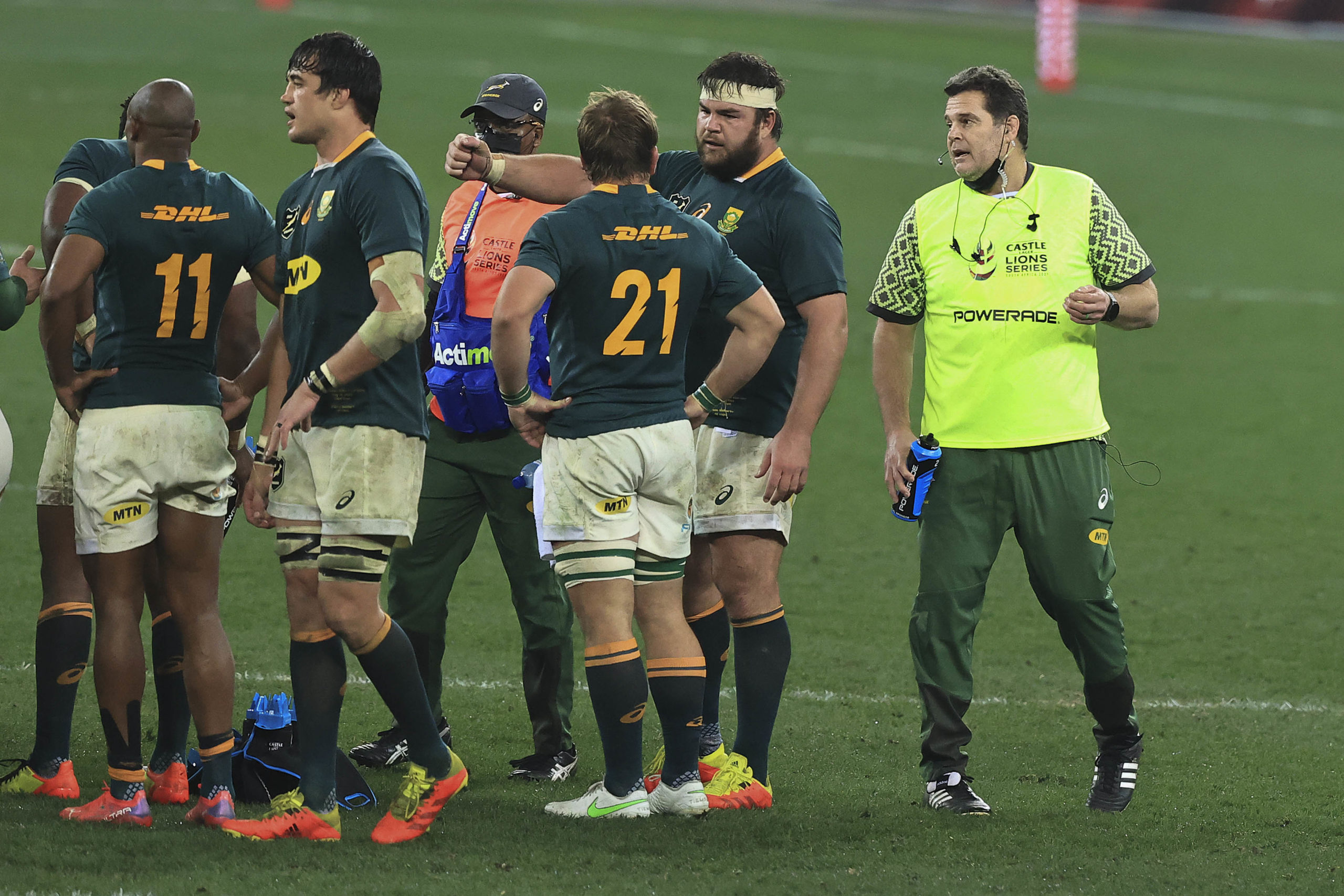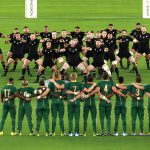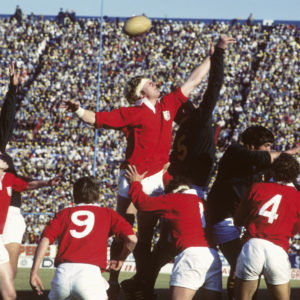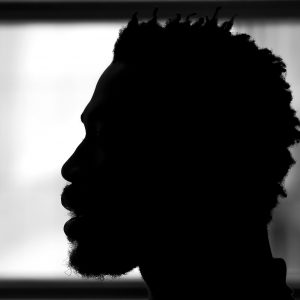Rassie Erasmus walks a fine rugby line
South Africa’s director of rugby has always tested the boundaries and it’s doubtful he will change his ways, despite World Rugby’s charges of misconduct.
Author:
1 October 2021

In the Australasian stampede to declare the Springboks’ reign as world champions fake news following their recent losses, someone in New Zealand had the idea to rent-a-quote former All Blacks coach Laurie Mains ahead of the 100th Test match between the two countries in Townsville, Australia, on Saturday 25 September.
Now 75, Mains has a prickly relationship with South African rugby, not least because the 1995 Springbok team denied him the chance to win a World Cup with an incomparable All Black side supposedly poisoned by a waitress named Suzy before the final. So it was hardly surprising that he gave the Boks “no chance” against the All Blacks ahead of their historic meeting, and said that a handful of the same players who had won the World Cup in 2019 were not good enough to be playing international rugby.
Mains had an added incentive to crawl out from under whatever rock he did – an apparent lack of relevance in the game aside (his scathing analysis was peppered with oblique observations such as “the centre and the wings” rather than the players’ names) – in that the successes of the current Springbok side have the fingerprints of his old nemesis Rassie Erasmus all over them.
Related article:
A former Springbok and now the director of rugby at SA Rugby, Erasmus was a player who didn’t know his place when Mains moved to Johannesburg in 2000 to coach the then Cats after his days as the All Black coach were over. Mains was authoritarian, while Erasmus’ mind had never seen the inside of a box and he not only insisted on analysing the opposition for himself but also made suggestions about how the team should play.
Anecdotes at the time alleged that Erasmus was the mastermind behind a move South African Super Rugby sides adopted, in which they lifted a player lineout-style when the opposition had a long kick at goal to try and intercept the ball before it crossed the bar. The one time it worked – against the Crusaders in Christchurch, New Zealand – Mains wanted the team to boot the ball out of play. But Erasmus ordered a counterattack that resulted in the Cats scoring a contender for Try of the Year.
Reports back then had the New Zealander accusing his captain of body language that undermined his authority, while Erasmus made clear his disdain for his coach by letting it slip that he once warned them about two “danger men” who were in fact injured.
Instead of indulging a player who flirted with the fine line between healthy and unhealthy disrespect for authority, like Erasmus’ subsequent coaches at the Cheetahs and the Springboks would, Mains pushed back hard. But ultimately he was the one to fall when Erasmus remained in the team while Mains was fired.
World Rugby, which is throwing the book at Erasmus for allegedly leaking a video he made for them criticising Australian referee Nic Berry’s performance in the Springboks’ first Test against the British and Irish Lions in Cape Town on 24 July, must be every bit as exasperated with Erasmus as Mains once was.
Issues with authority
Apart from the video, Erasmus is suspected among the rugby community of having revived a burner account of his on Twitter using the name Jaco Johan to air grievances about the officiating in the build-up to the Lions Test series. He is also seen to have gone against the spirit of the game by circumventing World Rugby’s technical area laws when he took on the role of overdecorated water carrier during the series.
One man not entirely surprised by Erasmus’ chicanery in search of a competitive edge was there when the ex-Bok flanker was a fledgling coach who had never seen an envelope he didn’t try to push. This was former Cheetahs and Springbok fullback Bevin Fortuin.
Erasmus recruited Fortuin in his first year as the Cheetahs coach in 2005, and Fortuin gives the coach credit for turning him into a Currie Cup winner that same year and then a Springbok player. He says Erasmus’ disruptive tactics during the Lions series were on brand.
“He’s not a random guy. He always thinks out of the box and tries to be one step ahead of everyone all the time,” explains Fortuin. “His being next to the field as a water carrier put a doubt in the Lions’ minds and you could see that when [Lions coach] Warren Gatland made a comment on it.
Related article:
“The thing is, everybody does it. So, why not Rassie Erasmus? You could tell that Rassie decided, ‘I know there’s a lot of pressure on us with this tour, so let me take it. Let me take the heat from the media and the players can do what they need to do.’
“It worked brilliantly and I think it took a bit of pressure off [new Springbok head coach] Jacques Nienaber and his coaching staff. The video … at the time, I thought maybe it wasn’t the best thing for him to do. But again, he put all the pressure on him so the others could get on with their work.”
Fortuin, who pledged R100 if there is a kitty to pay for Erasmus’ legal fees against World Rugby, laughs knowingly when he is told that in his role as SA Rugby director of rugby, his old coach discourages local coaches from criticising referees in public. “That’s him! That’s his mindset and the games he likes to play.”
Looking back at Erasmus’ early Cheetahs days, when he took over as a 33-year-old the year after retiring as a player, Fortuin remembers a constant culture of learning where nothing was left to chance in pursuit of the Free State side’s second ever Currie Cup title.
Bomb Squads and disco lights
If anything, that was the year in which the Erasmus that South African rugby fans have come to love was formed, from the culture of analysis he introduced at the beginning of the season to fielding a Bomb Squad-esque 5-2 split bench (with three frontrowers) in the seismic upset of the Blue Bulls in the 2005 Currie Cup final.
“If we were playing the Bulls, he’d tell me to go study their halfbacks in terms of where they kicked and how they kicked. The point was to work out how to give Fourie du Preez, Derick Hougaard or Morne Steyn a picture of where they would think they should kick [from having studied them].
Related article:
“So if they had a scrum in the middle of the field, I’d leave a corner open so they could kick there. But by the time they actually did kick, I was suddenly standing there because we’d made them think there was nobody there.
“As a guy who used to analyse opponents when he was a Springbok and suggest plays for the coaches, he put us in a mindset of studying the opposition. On Sundays, we had to go and fetch DVDs of the opposition at the stadium gate. We’d look at them for the next two days and sometimes do presentations on them.
“Everyone, including management staff like doctors and physios, had to know what the plan was for our games.”
Crossing the line
But for every ingenuous plan – such as getting fast and elusive winger Philip Burger to put the ball in the scrum when the Cheetahs had a big blindside, so he could be one on one with his opponent – there was always a disingenuous idea lurking in the grey areas of what was ethical.
Fortuin says the Cheetahs had a move where he would pretend to be injured and sit next to the touchline complete with ice pack and doctor, only to spring back on to the field once his team was attacking on his side of the pitch.
When asked about the gamesmanship of such a move, “that is pushing it, but at the end of the day it worked”, he laughs. “I think it was against the Valke. But for him it was never crossing the line, he was just putting things in place to keep us ahead of opposition teams.
“The times I used to sit next to the touchline with ice on my knee or hamstring might have been crossing the line a bit because you’re saying the player’s injured. But I guess those days it was just him in his early years and trying to get ahead or bring his flavour into things.”
Related article:
Erasmus’ street cred would also not be what it is without a touch of psychological warfare. In the week leading up to that Currie Cup final upset over the Bulls, Erasmus played Steve Hofmeyr’s anthem for the Bulls, Die Blou Bul, throughout their practice sessions.
“On the third day, I asked him what the hell that was about, because it was driving us nuts. He told us the song was very motivational for the Bulls, so he was preparing us to be ready for the moment whenever it was played. And when we were warming up at Loftus [Versfeld], they played the song and the effect was it took us from first gear to fifth in terms of motivation…”
While he doesn’t think the Boks have necessarily missed Erasmus in Australia, Fortuin says his relentless pursuit for a competitive edge could hurt them off the field, going forward. “It might put a target on the Boks’ backs, but I don’t think Rassie’s worried about that at the moment.”
Given that most coaches privately credit Erasmus’ 60-minute video for winning the Springboks the Lions series, because of how it affected the officiating in the last Two tests, it’s difficult to imagine them not missing his keen observations and ability to exploit the smallest details.




